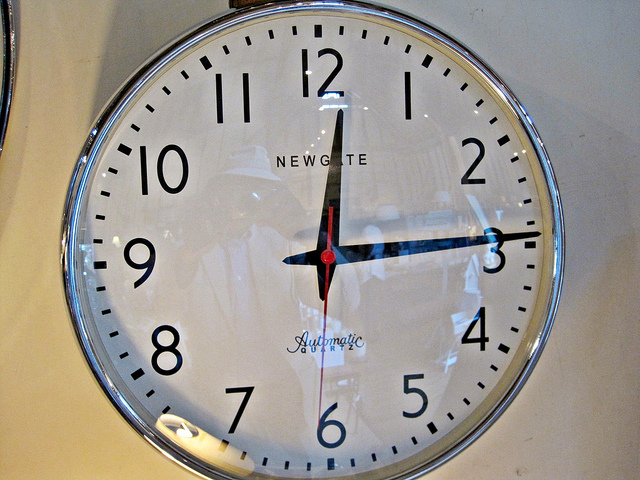
I learned a great phrase from a colleague recently: tactical patience.
He’s in the National Guard and he got it from the Army guys while he was called up.
Certainly the Army is not the first to discover the notion of waiting for the right time to act, but I love how “tactical patience” emphasizes that it’s an intentional, strategic choice.
Here’s an example of an article I found about tactical patience.
On another blog, I found this definition of tactical patience:
Tactical patience is giving a situation enough time to develop and unfold before trying to determine its meaning, significance and how to react to it. Tactical patience can sometimes require only a few seconds and sometimes require many hours.
How might tactical patience come into play if you aren’t in the armed forces?
- Your spouse is on your last nerve and you decide to hold your tongue until you’re calm enough to have a productive conversation.
- You feel the need to have an important conversation with your boss, but you know the boss is distracted with big issues so you wait until the time is right.
- You want to sell your house but the market is soft so instead you wait another year.
Whether it’s waiting for the politics of your office to change or waiting for an irritating neighbor to move out, life has many moments when patience can pay off.
I had a therapist tell me once that humans love to do something. Activity makes us feel in control of our lives, even if it’s unproductive. He said it can be useful to actively remind yourself, I am making a choice to do nothing because it’s the best course of action right now.
He didn’t use the phrase “tactical patience,” but that’s essentially what he was describing.
Have you ever used tactical patience — waiting to take action so you would get a better result?


5 Comments
margaret y.
I use tactical patience when cooking. Constantly peeking into the oven or crock pot only heats up the house and slows down the cooking. Cooks love to poke and prod at their food. This is very often a mistake.
Colleen Newvine Tebeau
Margaret, in our house there’s sometimes the related problem of continuing to spice and fuss with something that would have been delicious if you left it alone to cook, but instead you make it too hot, too salty, too something else.
Just letting it be so it can develop flavor on its own requires restraint.
Sharon
Tactical patience, for me, is best understood by remembering the consequences of times I was unable to use th is tool. Escalation of conflict invariably ensued. So, my mantra has become two-fold, both in my personal and professional lives. “Watch your words” and “choose your battles” can be helpful when you feel you are about to explode. It is when we reach the end of our patience that we most need to employ it. I try to use tactical patience when dealing with drama in the workplace. Often when we let others vent on and simply listen without pointing out inaccuracies, contradictions, etc. the invective loses momentum. Before long the pendulum starts to swing more to a balance and often, some backtracking begins to take place. Self-awareness may even follow — something not likely to happen when the correction comes from an external source. When I don’t muster the patience we can be dealing with the aftermath for weeks!
Colleen Newvine Tebeau
I love this line, Sharon: It is when we reach the end of our patience that we most need to employ it.
So very true. Thanks.
get dropbox space lifehacker
I am truly grateful to the owner of this web site who has shared this great article at at
this place.
Leave a reply